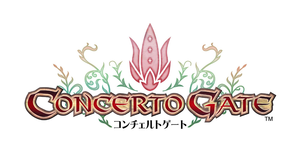
Final Fantasy IV, known as Final Fantasy II for its initial North American release, is a role-playing video game developed and published by Square for the Super Nintendo Entertainment System. Released in 1991, it is the fourth main installment of the Final Fantasy series. The game's story follows Cecil, a dark knight, as he tries to prevent the sorcerer Golbez from seizing powerful crystals and destroying the world. He is joined on this quest by a frequently changing group of allies. Final Fantasy IV introduced innovations that became staples of the Final Fantasy series and role-playing games in general. Its "Active Time Battle" system was used in five subsequent Final Fantasy games, and unlike prior games in the series, IV gave each character their own unchangeable character class.

Wizardry is a series of role-playing video games, developed by Sir-Tech, that were highly influential in the evolution of modern role-playing video games. The original Wizardry was a significant influence on early console role-playing games such as Final Fantasy and Dragon Quest. Originally made for the Apple II, the games were later ported to other platforms. The last game in the original series by Sir-Tech was Wizardry 8, released in 2001. There have since been various spin-off titles released only in Japan.

Square Enix Holdings Co., Ltd. is a Japanese entertainment conglomerate and video game company best known for its Final Fantasy, Dragon Quest and Kingdom Hearts role-playing video game franchises, among numerous others. Outside of video game publishing and development, it is also in the business of merchandise, arcade/amusement facilities and manga publication under its Gangan Comics brand.

Final Fantasy XI, also known as Final Fantasy XI Online, is a massively multiplayer online role-playing game (MMORPG), originally developed and published by Squaresoft and then published by Square Enix as the eleventh main installment of the Final Fantasy series. Designed and produced by Hiromichi Tanaka, it was released in Japan on May 16, 2002, for PlayStation 2 and Microsoft Windows-based personal computers in November of that year. The game was the first MMORPG to offer cross-platform play between PlayStation 2 and personal computer. It was also the Xbox 360's first MMORPG. All versions of the game require a monthly subscription to play.
Chrono Break is a cancelled third mainline entry in the Chrono series of video games by Square. While never officially announced by the company, commentary from Chrono series developers Masato Kato, Hironobu Sakaguchi, and Takashi Tokita have confirmed early plans for the game, alongside a number of trademarks filed in the game's name. However, the game would ultimately go unproduced, with many members of the internal development team either moving on to Final Fantasy XI or leaving the company in favor of freelance work. The game elicited much commentary from the company and the video game press in the following years, though as of 2021, all trademarks had expired, with no announced plans to work on the game.

Final Fantasy XII is a role-playing video game developed and published by Square Enix. The twelfth main installment of the Final Fantasy series, it was first released for the PlayStation 2 in 2006. It introduced several innovations to the series: an open world; a seamless battle system; a controllable camera; a customizable "gambit" system, which lets the player control the artificial intelligence (AI) of characters in battle; a "license" system, which determines what abilities and equipment can be used by characters; and hunting side quests, which allows the player to find and defeat increasingly difficult monsters in the game's open world. Final Fantasy XII also includes elements from previous games in the series, such as Chocobos and Moogles.
Final Fantasy VII is a role-playing video game developed by Square and published by Sony Computer Entertainment as the seventh installment in the Final Fantasy series. Released in 1997, the game sparked the release of a collection of media centered on the game entitled the Compilation of Final Fantasy VII. The music of the Final Fantasy VII series includes not only the soundtrack to the original game and its associated albums, but also the soundtracks and music albums released for the other titles in the collection. The first album produced was Final Fantasy VII Original Soundtrack, a compilation of all the music in the game. It was released as a soundtrack album on four CDs by DigiCube in 1997. A selection of tracks from the album was released in the single-disc Reunion Tracks by DigiCube the same year. Piano Collections Final Fantasy VII, an album featuring piano arrangements of pieces from the soundtrack, was released in 2003 by DigiCube, and Square Enix began reprinting all three albums in 2004. To date, these are the only released albums based on the original game's soundtrack, and were solely composed by regular series composer Nobuo Uematsu; his role for the majority of subsequent albums has been filled by Masashi Hamauzu and Takeharu Ishimoto.

Akitoshi Kawazu is a Japanese game designer, director, producer and writer. After joining Square in 1985, he went on to become a central developer for the first two Final Fantasy titles, then acted as creator and lead developer for the SaGa series.

Fantasy Earth Zero is a 2006 massively multiplayer online role-playing game developed for Microsoft Windows. Originally developed by Puraguru and Multiterm under the title Fantasy Earth: The Ring of Dominion, it was released by Square Enix as a paid product through its PlayOnline service. It relaunched under Gamepot as a free game, and is currently handled by developer SoftGear and publisher Square Enix. Under the premise of a world where rival kingdoms engage in frequent conflicts, players choose an allied kingdom and fight against each other in groups of up to fifty players.

Final Fantasy Type-0 is an action role-playing game developed and published by Square Enix for the PlayStation Portable (PSP). Released in Japan on October 27, 2011, Type-0 is part of the Fabula Nova Crystallis subseries, a set of games sharing a common mythos which includes Final Fantasy XIII and Final Fantasy XV. The gameplay, similar to Crisis Core: Final Fantasy VII, has the player taking control of characters in real-time combat during missions across Orience. The player also engages in large-scale strategy-based battles on the world map, and has access to a multiplayer option during story missions and side quests.

Fabula Nova Crystallis Final Fantasy is a series of games within the Final Fantasy video game franchise. It was primarily developed by series creator and developer Square Enix, which also acted as publisher for all titles. While featuring various worlds and different characters, each Fabula Nova Crystallis game is ultimately based on and expands upon a common mythos focusing on important crystals tied to deities. The level of connection to the mythos varies between each title, with each development team given the freedom to adapt the mythos to fit the context of a game's story.

Concerto Gate is a massively multiplayer online role-playing game developed by Ponsbic and Square Enix. The game was released in Japan in 2007, and a planned North American release was cancelled after a beta release in July 2008.

Wizardry Online was a free-to-play MMORPG developed by Gamepot, Inc, based on the classic Wizardry computer games originally created by Sir-Tech. It was released in January 2013 before being discontinued in July 2014.

Level Up! Inc., more commonly known by the trademark Level Up! Games, is a Philippine game publishing studio owned by Asiasoft since 2014. According to their website, they currently have operations in the Philippines, Brazil and Latin America.
The Japanese video game magazine Famitsu assigns scores to video games by having four reviewers each give a score from 0 to 10. The scores of the four reviewers are then added up for a maximum possible score of 40. From the twenty seven games awarded with a perfect score as of 2021, three are for the Nintendo DS and five are for the Wii. The PlayStation 3 also has five games with a perfect score and the Xbox 360 has four, with both consoles having two titles in common. The others are for different platforms with only one title each. Franchises with multiple perfect score winners include The Legend of Zelda with four, Metal Gear with three, followed by Dragon Quest and Final Fantasy with two.












